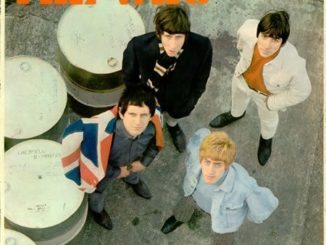From bassist to banker and punk rocker to priest, six lifelong rebels on the movement that made them

Ausaf Abbas, 55
Then: bass player, Alien Kulture
Now: investment banker
We very much believed in the philosophy of punk – here’s a chord, here’s a second, here’s a third, now go and form a band. I’d never touched a bass guitar until our first rehearsal, but that didn’t matter. It was all about the energy and the enthusiasm.
We were probably from the more intellectual wing of punk and were very much involved in the Rock Against Racism campaign. Our name came from Margaret Thatcher, who’d made an infamous comment about how Britain was in danger of being swamped by an alien culture. We interpreted that to mean that if you weren’t white, Anglo-Saxon, middle-class, Protestant, maybe you didn’t fit in.
The reason we split up was quite classic. The drummer and I were both students at the London School of Economics. We had our finals coming up, but got an offer of a 20-gig tour with another band. Our singer insists it was The Specials, but I’m not so sure. However, our Pakistani roots reasserted themselves and we decided we’d better concentrate on passing our finals.
I loved what the band did, but I knew I wasn’t going to make a living from it. After getting my masters degree, I started working for BP as an economist. I didn’t know much about finance – it was quite an arcane, closed industry – but when Thatcher liberalised and deregulated large parts of the British economy, she set off a revolution in financial services. It seemed an obvious move to make, from oil into finance, so I joined Merrill Lynch, where I spent 21 years.

The money I earn does allow me to do some good – one of my friends worked for Amnesty International and knew I was an investment banker. He called me up and said, “Hi. I need you to send me £1,000, otherwise 12 people will die in Colombia tomorrow.” I agreed immediately. I stumbled into investment banking by chance, but I love the opportunities it has given me. I’ve met prime ministers and finance ministers and CEOs of major corporations. This was unbelievable for an immigrant kid who grew up in Brixton in a single-parent family.
I’m sure my 20-year-old self would look at me and shout, “Sellout!” But I don’t feel like a sellout. I’m just older and wiser. I’m 55 now. I’m old, fat and bald. When I tell people I was in a punk band, most just laugh and think I’m joking. But I’m very proud of what we did. In our own way, we helped Asian kids stand up and be counted for the first time in this country. Why wouldn’t you be proud of that?
Lesley Woods, 56
Then: singer/guitarist, Au Pairs
Now: barrister

I was a late starter. Punk had been around quite a while when I got into it, in 1978. What was really appealing was sticking two fingers up at rock musicians. People could get up and do their thing without having to be these great, macho lead guitarists. And women could do it on their own terms, without having to conform to some female stereotype of having big boobs and being really pretty. People likeSiouxsie Sioux, Poly Styrene and Patti Smith were great role models.
But we were constantly met with a wall of violence and aggression. There were fights; [Slits singer] Ari Up got stabbed. There comes a point where you can’t go on any more at that level. After the band folded, my brain was quite scrambled and I needed to get my mind back, so I thought I’d do something really difficult and started studying law.

See more at the Guardian
Looking for punk vinyl, CDs, merchandise or memorabilia? Visit eil.com to see our huge range




Be the first to comment